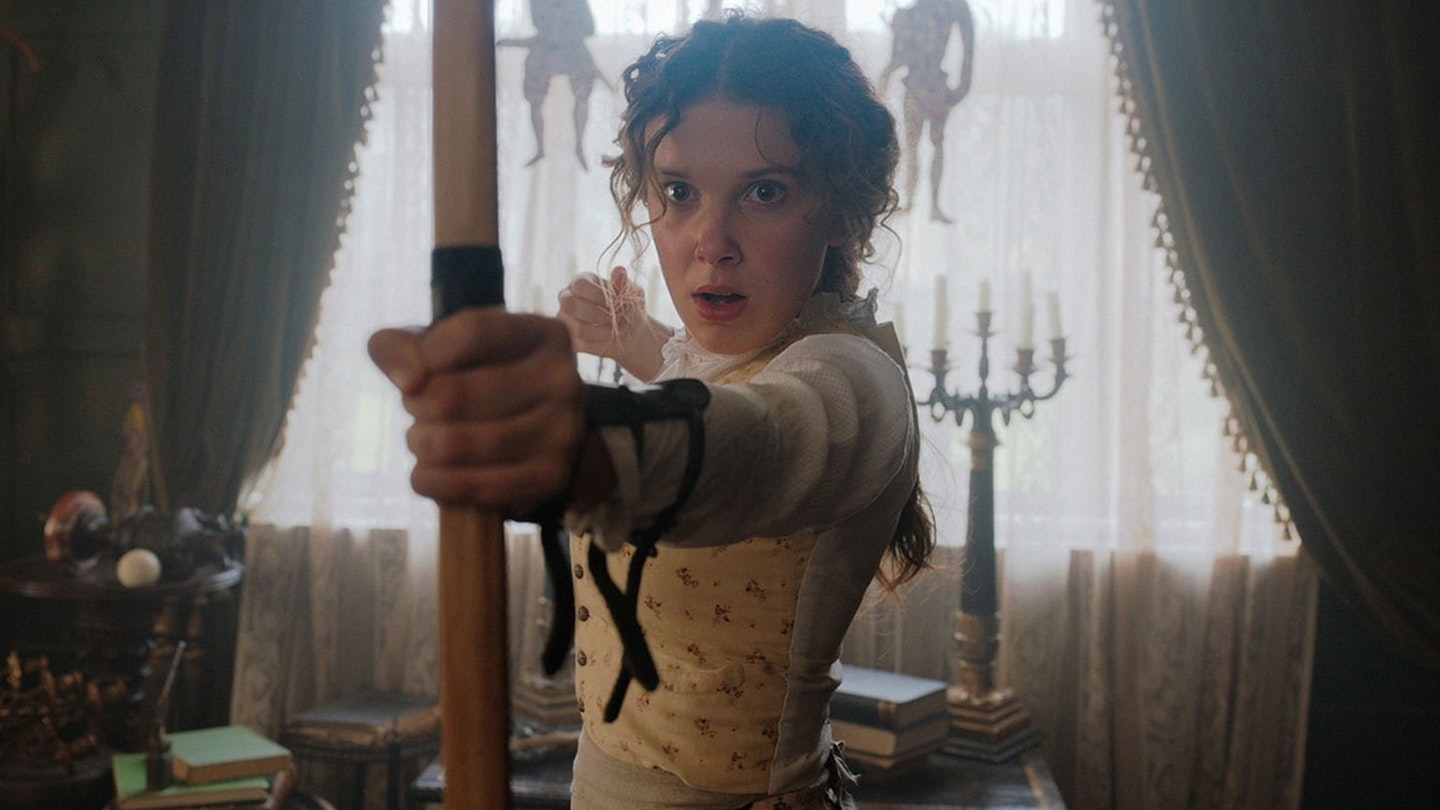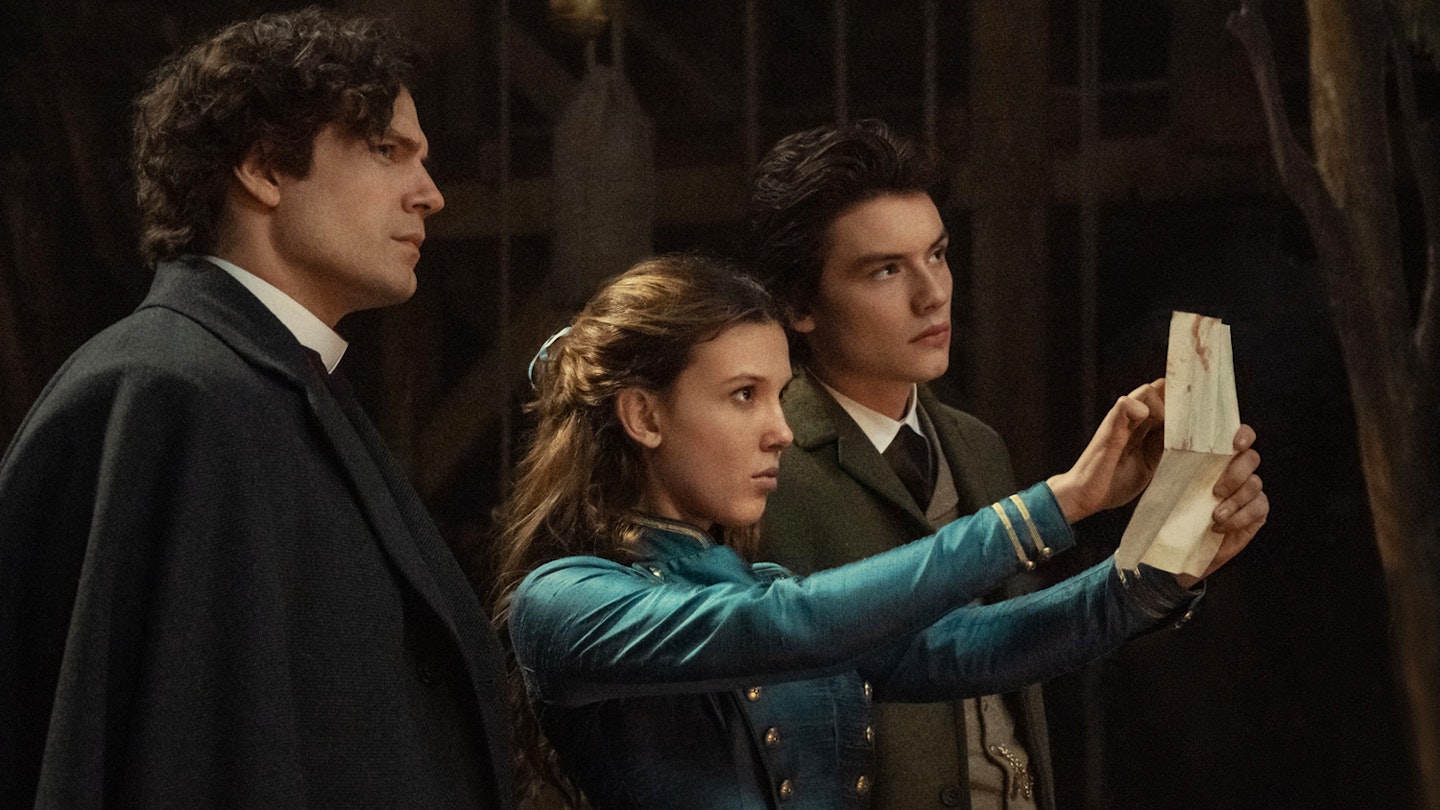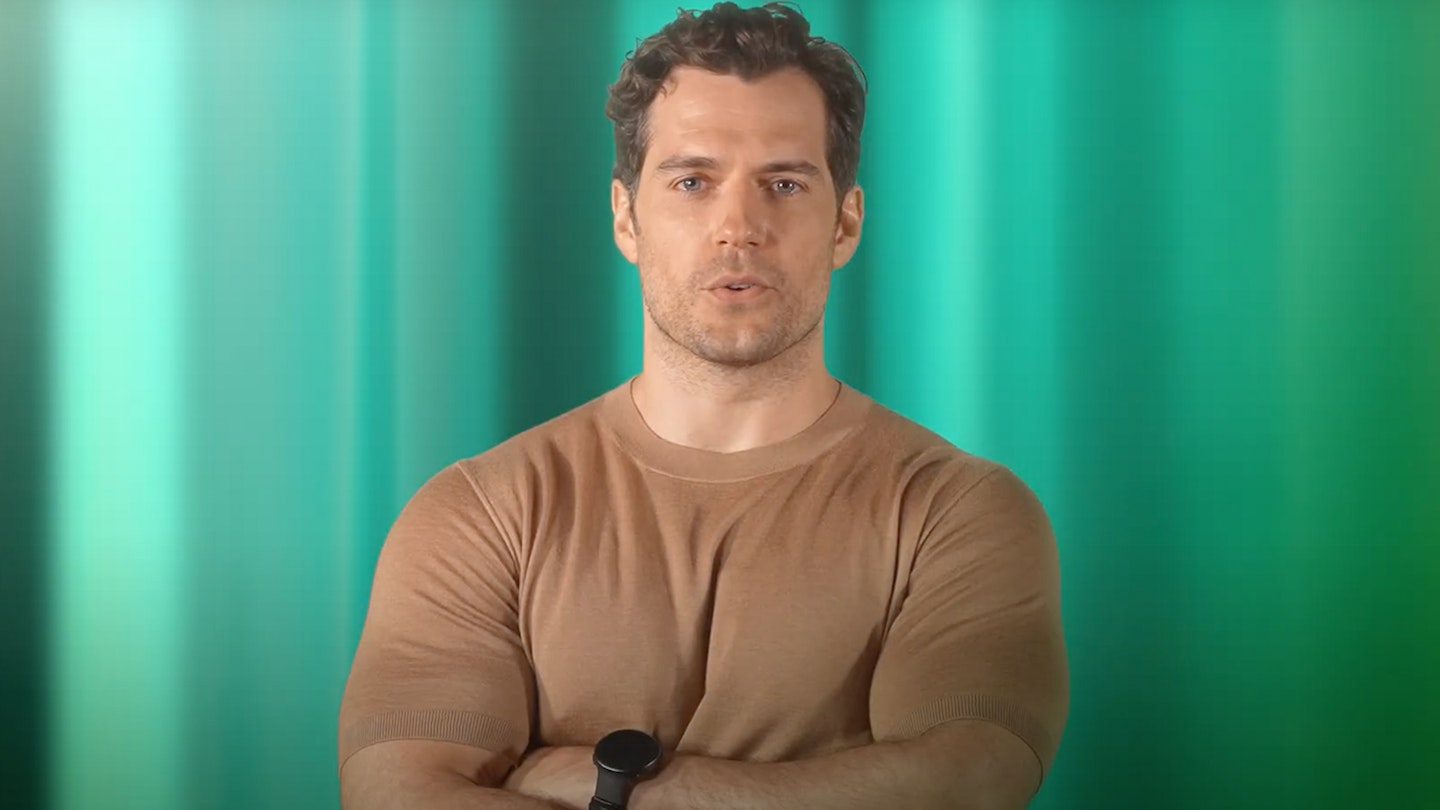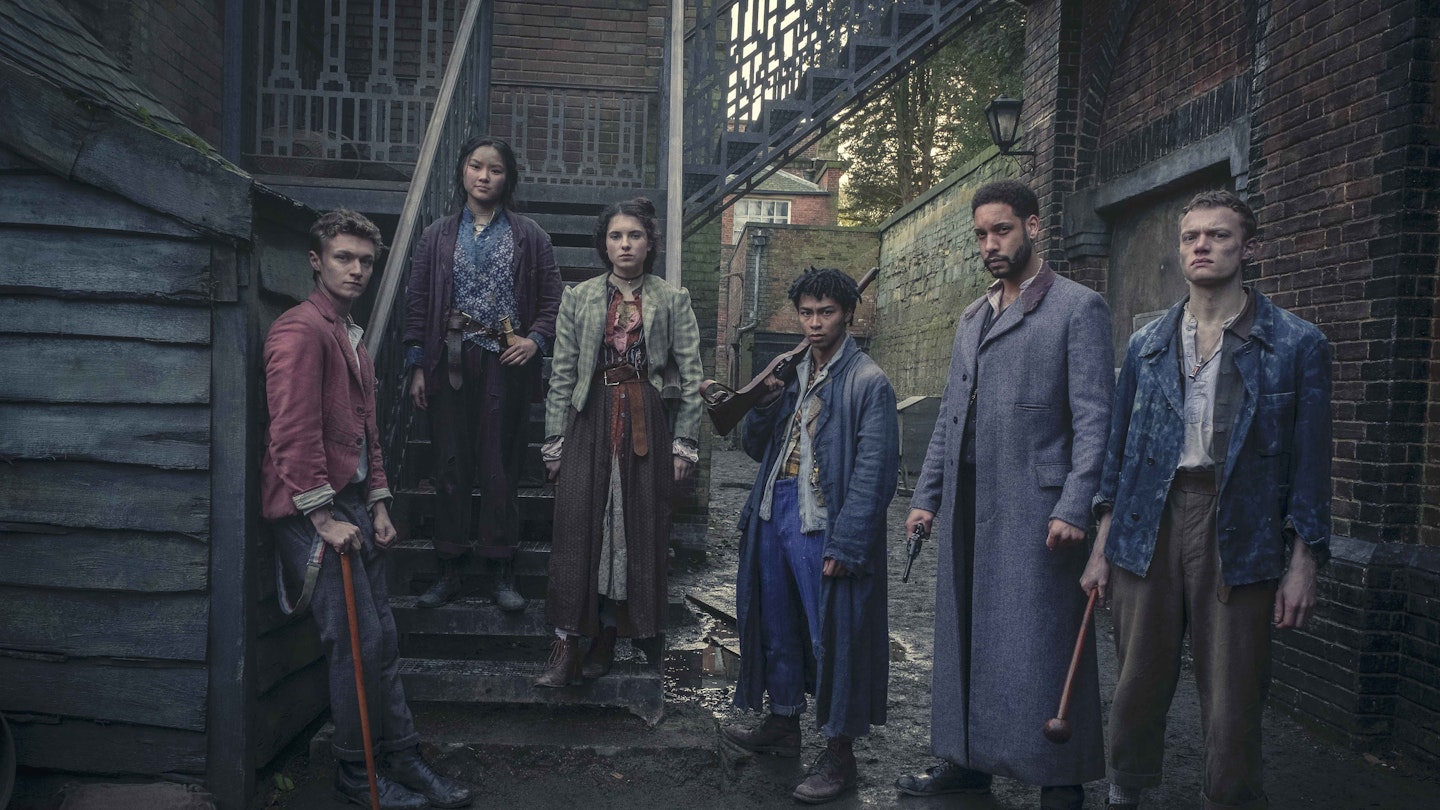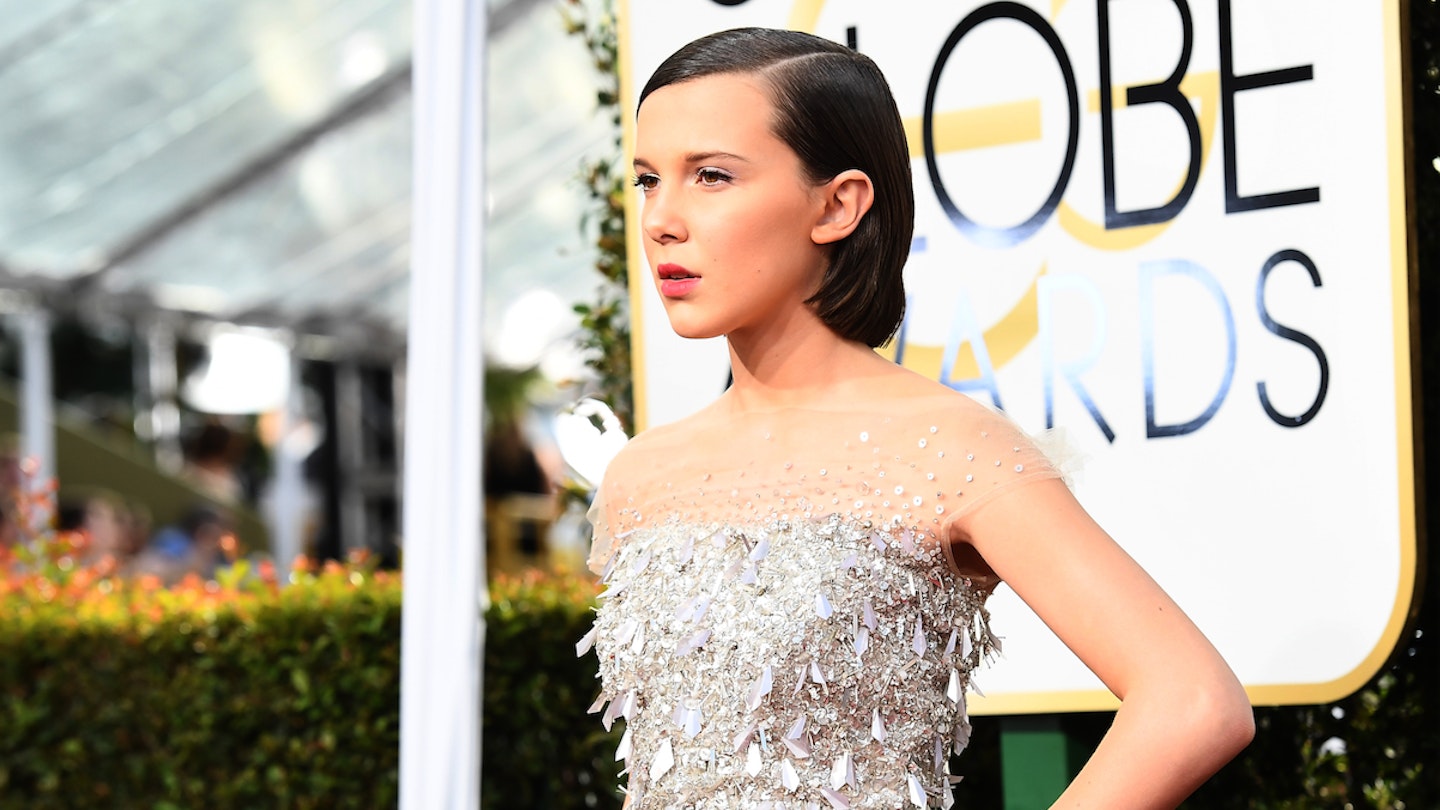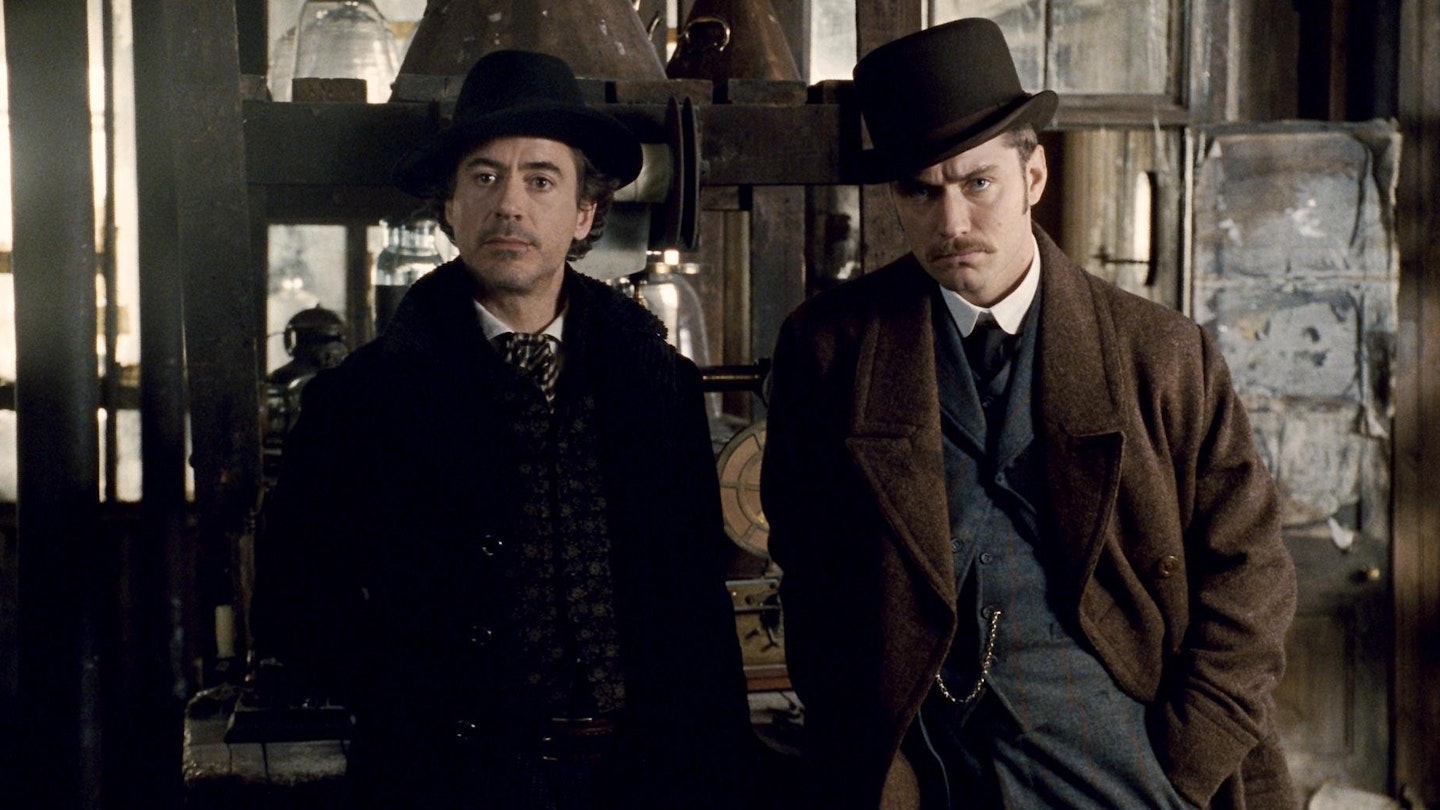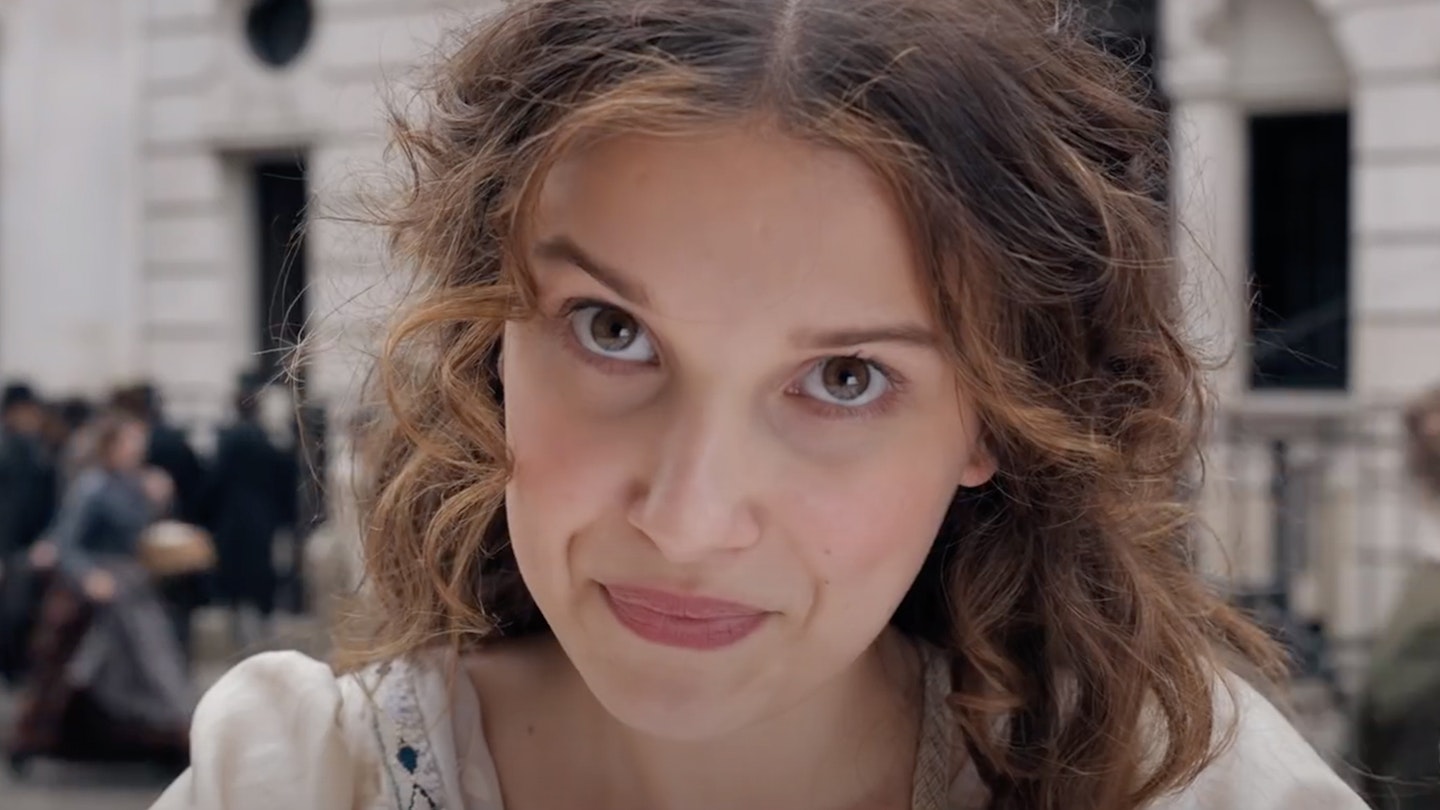At the ripe old age of 16, Stranger Things sensation Millie Bobby Brown is stepping out of Eleven’s shadow and continuing to show confidence beyond her years by starring in and producing a new take on the world of Sherlock Holmes, shifting the focus onto his sister, Enola. She’s the youngest but also the bravest of the Holmes clan, and Brown relishes the opportunity to show the world again that — hey! — girls have stories to tell too. Based on the book series by Nancy Springer, the result is a sweet, family-friendly adventure — even though it could give its headstrong protagonist more richness and complexity.
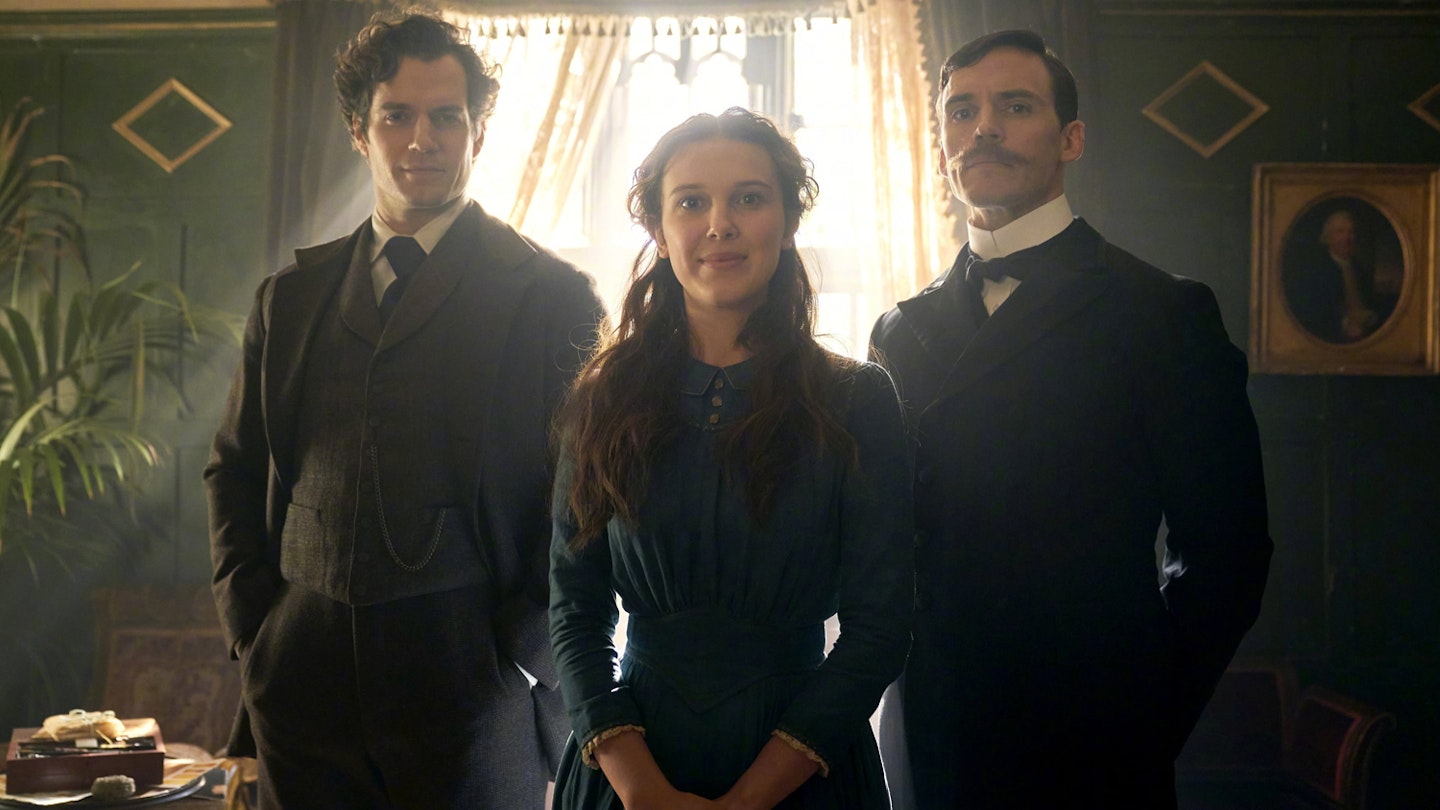
We meet Enola, immediately comfortable with the audience (if a touch too eager) as she talks to camera telling us the story of her close bond with her mother (a quick-witted Helena Bonham Carter) and her journey to find her when she disappears (These direct addresses make sense, considering Fleabag director Harry Bradbeer is behind the camera.) As she sets off, we get to know Enola (“alone” spelled backwards, she proudly says) through those closest to her. There’s the frustration with her brothers — Henry Cavill offering a stoic take on Sherlock, Sam Claflin sharply pantomimic as Mycroft — and men more broadly (“I don’t want a husband,” Enola grimaces). There’s the admiration she has for her independent, valiantly feminist mother who she stubbornly aspires to be. And then, most compellingly, there’s the destabilising attraction she faces when meeting Lord Tewksbury (a likeable Louis Partridge), another lost soul looking to be saved.
Enola’s emotions are telegraphed plainly in exaggerated body language and expressions, making Brown’s performance feel better suited for the stage. There’s impressive choreography as Enola shows her fight training in some lively action scenes, but few feel instrumental to the storyline, favouring winks to the viewer over chemistry between characters. Jack Thorne’s sometimes thin screenplay aims for a sunny-side-up appeal — optimistic about resisting the inherited burdens of your family, fighting for your independence, and surviving as a young woman in a volatile world — but too often these cheery morals hit you over the head like a ton of bricks, with every on-the-nose punchline and teasing glance to camera. Still, the film is playfully designed, with sprightly animated intertitles and a jaunty Daniel Pemberton score, and has its heart firmly in the right place. The game's — just about — afoot.
